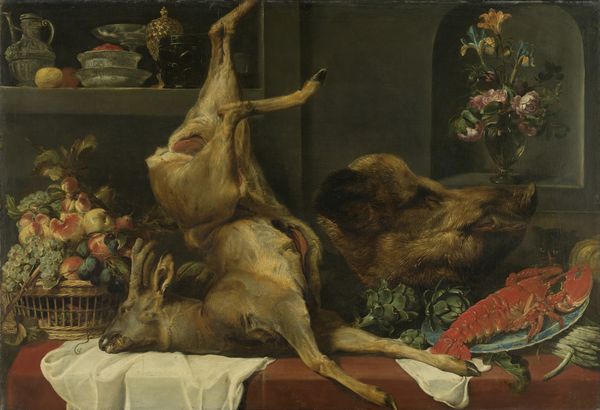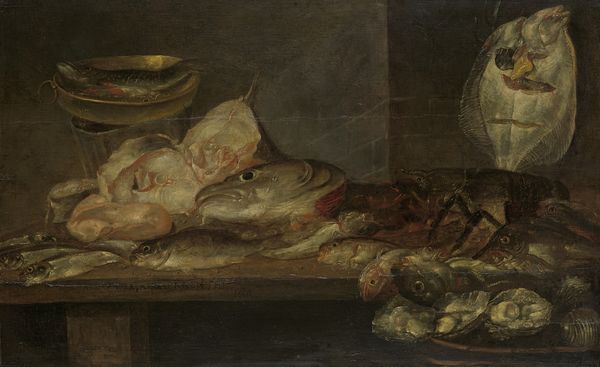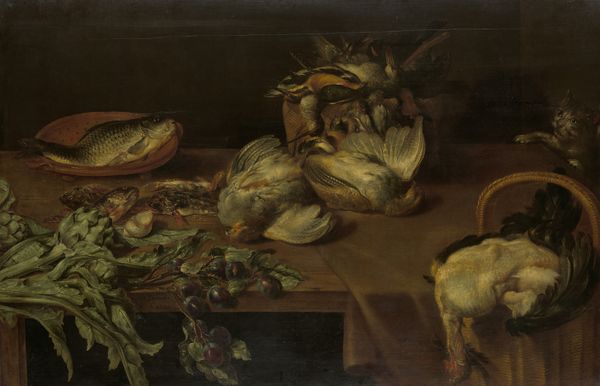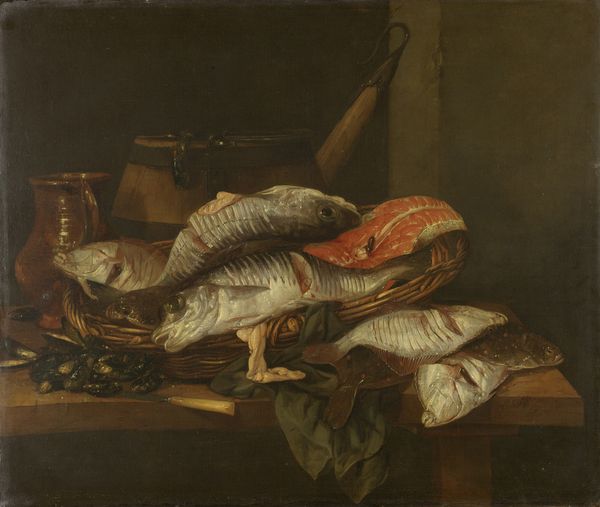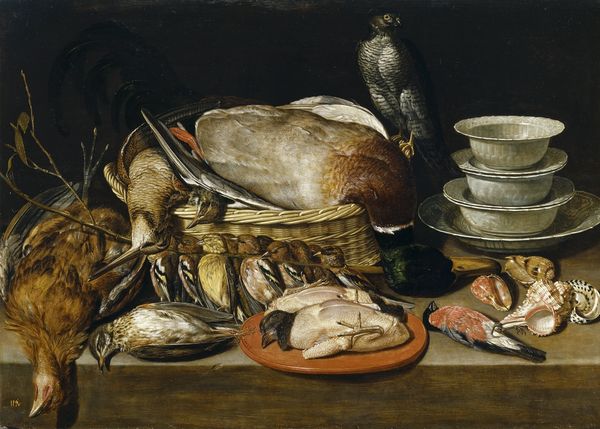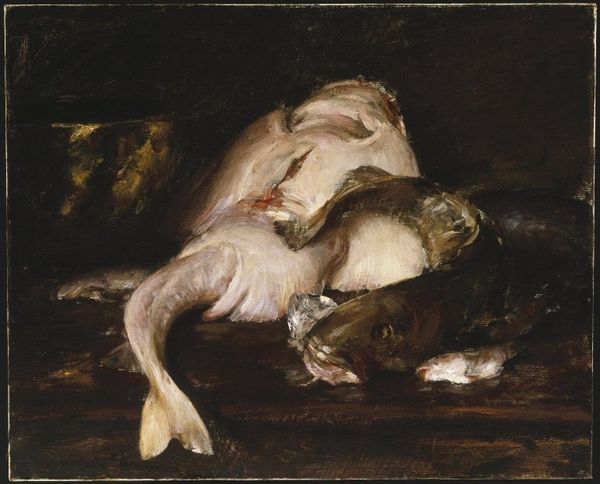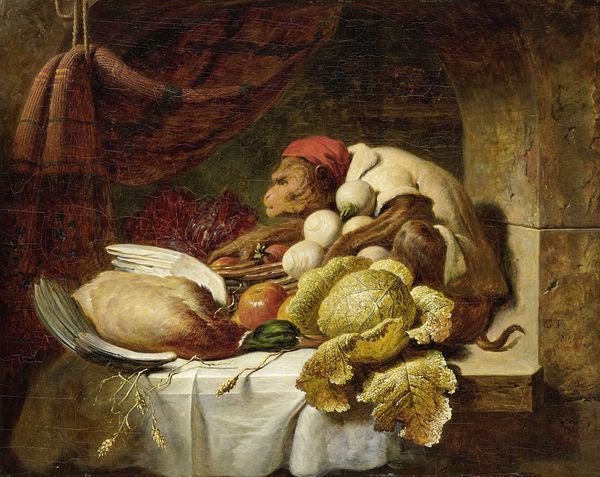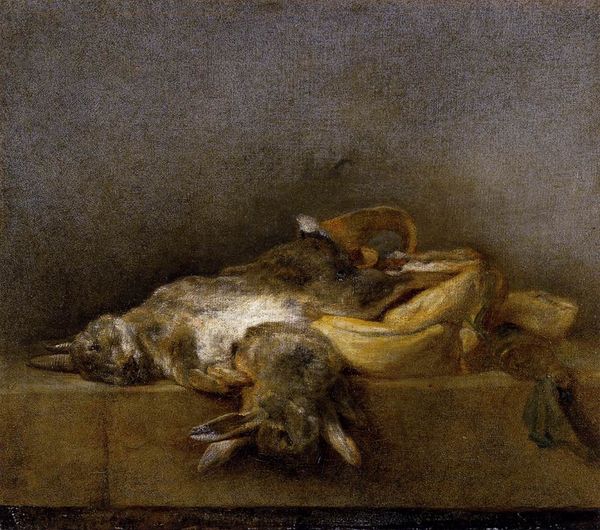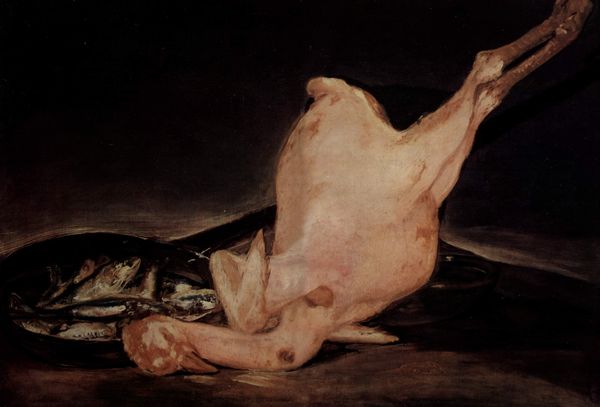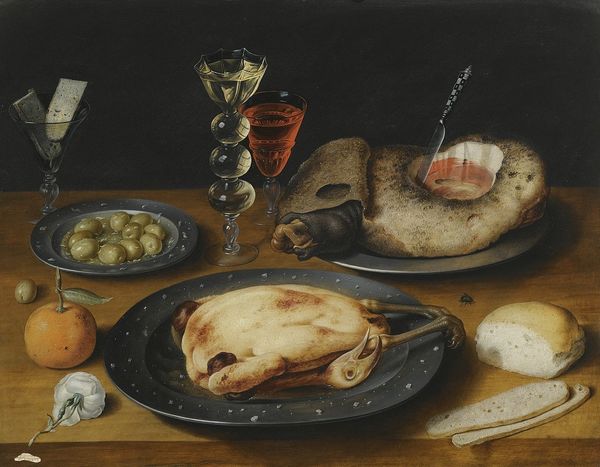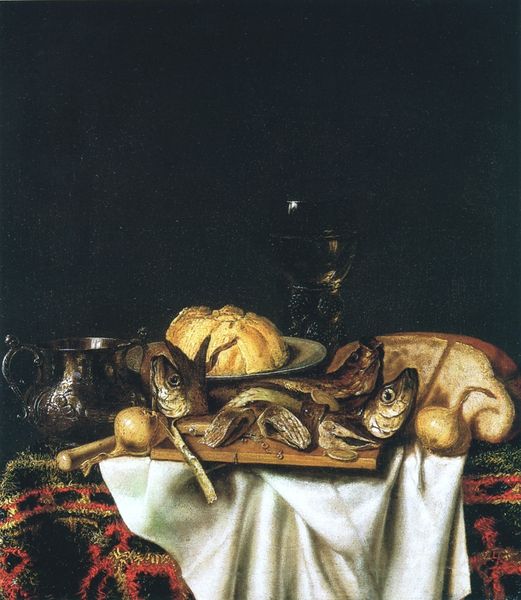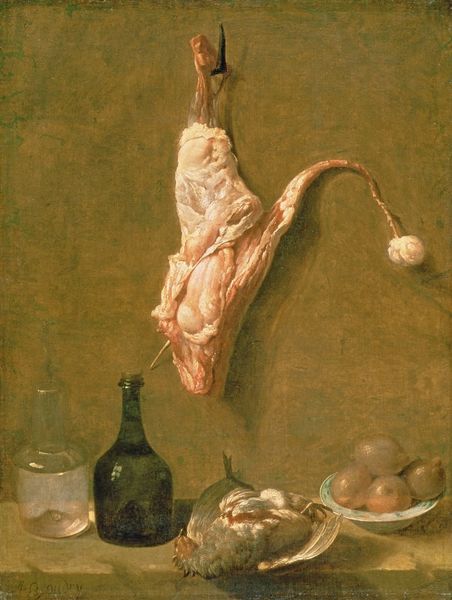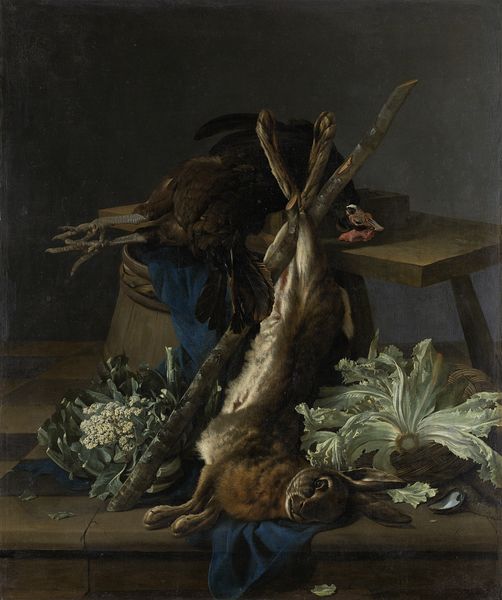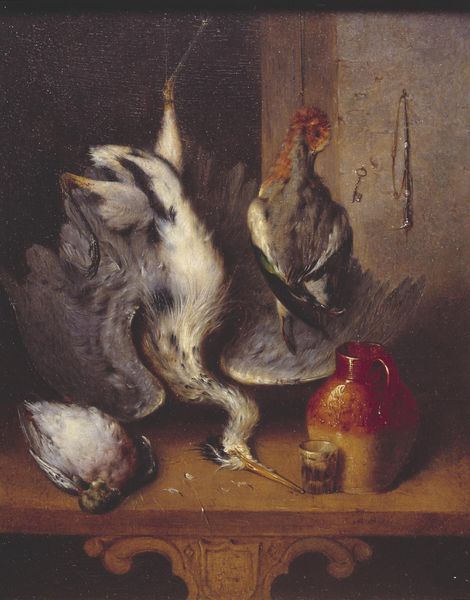
oil-paint
#
baroque
#
oil-paint
#
oil painting
#
flemish
#
genre-painting
#
realism
Dimensions: height 55 cm, width 72 cm
Copyright: Rijks Museum: Open Domain
Editor: So this is "Still Life with Pig's Head, Pig's Knuckles and Sausage" from between 1600 and 1650, by Monogrammist JVR. It’s rendered in oil paint, and it's... well, it's very upfront about its subject matter! I'm curious about how a work like this functioned within its context. What do you see in this piece? Curator: A question about context is spot-on. Genre painting like this wasn't just about representing objects; it was about reflecting and reinforcing a certain societal structure. The prominence given to food, specifically meat, indicates wealth and status. Editor: So it’s not *just* a butcher's display. It has deeper social meaning? Curator: Precisely! Think about the institutions that would support the creation and display of such a work. Wealthy merchants, guilds, or even the Church—they all had a vested interest in promoting an image of prosperity and order. Even the realism, the seemingly objective rendering, becomes a political tool. How might the public have reacted to such imagery? Editor: Maybe they saw it as aspiration? A subtle, constant reminder of what they could strive for, and perhaps who they should be striving for? Curator: Indeed! And it makes you consider the artist’s position. Were they celebrating Flemish abundance, or perhaps subtly critiquing it? The visual vocabulary always has complex layers. Editor: I never really considered still lifes as having a political undertone; it’s interesting how even everyday objects become charged with meaning when you look at the historical and cultural context.
Comments
No comments
Be the first to comment and join the conversation on the ultimate creative platform.
